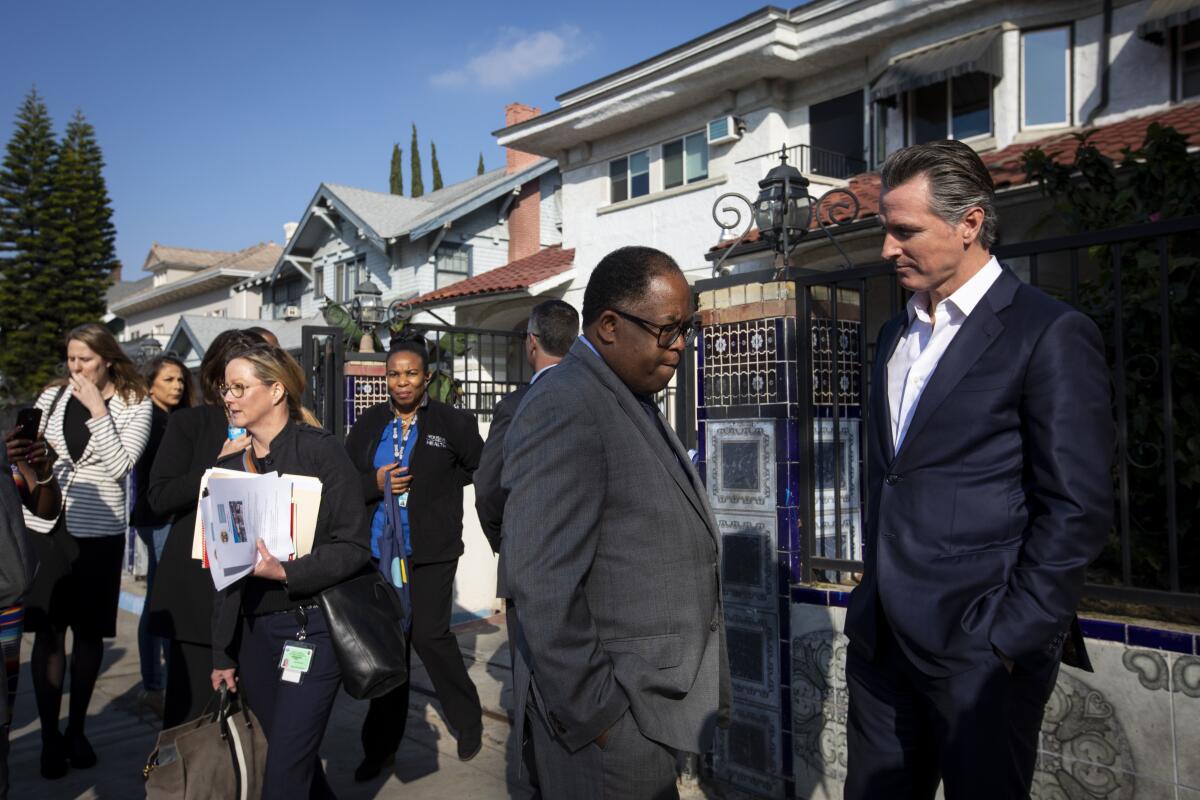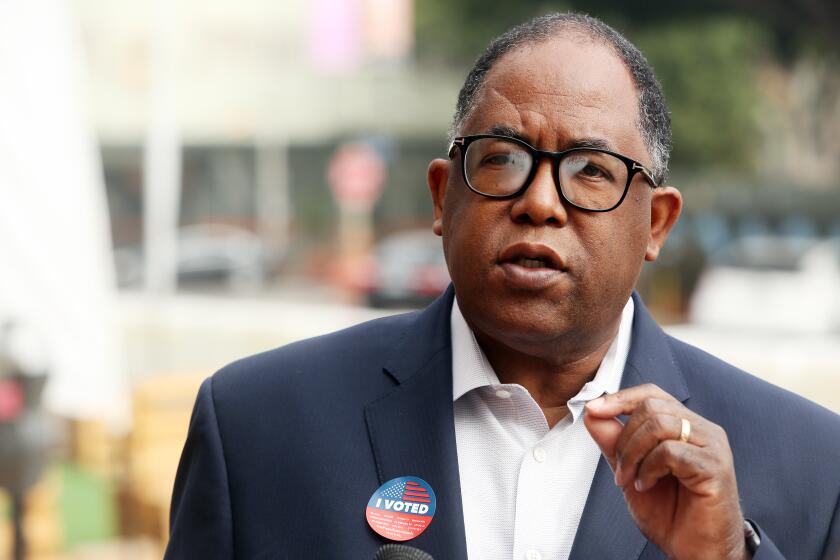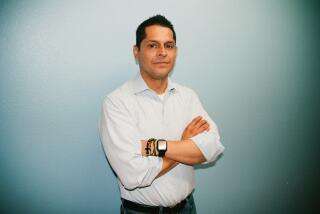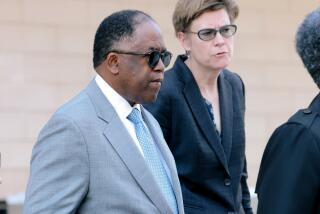Column: Ridley-Thomas, a heavy lifter on homelessness, now carries weight of bribery charges

As I’ve said before, maybe it’s in the water, or maybe it’s in the air. I’m not sure which, but when it comes to politics in Los Angeles, scandal is in the city’s DNA.
The latest exhibit is the Wednesday afternoon indictment of City Councilman Mark Ridley-Thomas, one of the most prolific and powerful politicians in Los Angeles.
Ridley-Thomas served in the state Assembly. He served in the state Senate. He served as a county supervisor between stints on the L.A. City Council. And he had often been considered a potential mayoral candidate.
I know Ridley-Thomas pretty well, and I’ve reported on his hard work and promise — particularly on homeless policy — as well as his flirtations with trouble. Once, when I called him out for a $700,000 plan to remodel his county office, he indignantly summoned me there to defend himself in the company of nearly his entire staff. He spoke then, as he often does, in a deep-voiced, measured tone and formal cadence, chest puffed, as if making a closing argument to a jury.
Then came a Times exposé detailing how county-paid crews had worked at his home replacing garage walls and installing appliances including an air conditioner, heater and television.
It was as if, at times, Ridley-Thomas was intent on sabotaging his own political aspirations. And yet on certain important topics, homelessness among them, he knew more than most of his colleagues, worked harder than they did, and got a heck of a lot more done.
A former USC dean is charged with paying off Mark Ridley-Thomas in exchange for millions of dollars in L.A. County contracts with the university.
But now his career, current and future, sits under a cloud with federal charges alleging a bribery scandal in which Ridley-Thomas, while serving as a county supervisor, conspired with a former USC dean to steer millions of dollars in county contracts to the university in return for admitting his son, Sebastian, into graduate school with a full scholarship and paid professorship.
The 20-count indictment also alleges that $100,000 from a Ridley-Thomas campaign fund was to be funneled through the university to a nonprofit where his son would work.
“This indictment charges a seasoned lawmaker who allegedly abused the public’s trust by taking official actions to benefit his family member and himself,” Acting U.S. Atty. Tracy L. Wilkison said in a statement. “The corrupt activities alleged in the indictment were facilitated by a major university’s high-ranking administrator whose desire for funding apparently trumped notions of integrity and fair play.”
For shame. But none of this can be a surprise, given that it comes three years after a Times investigation laid out the details and reported that USC had alerted federal prosecutors following an internal investigation.
Though nothing is proven, it didn’t take long for City Council President Nury Martinez to send out a message making it sound as if Ridley-Thomas was being sent to the penalty box.
“I’m disappointed in the news that has come out this afternoon of federal bribery charges against Councilmember Mark Ridley-Thomas,” said Martinez. “While the alleged crimes took place while Mr. Ridley-Thomas sat on the Board of Supervisors, these charges are serious and the Council will need to take appropriate action.”
And what might that be?
Hard to know, but it’s not as if scandal and the City Council have just met. Sure, Ridley-Thomas was a supervisor at the time of these alleged crimes. But City Hall has kept federal prosecutors busy in recent times.
Jose Huizar, another bright light at one time, saw his term on the City Council cut short last year thanks to corruption charges. And then there was former Councilman Mitch Englander, never referred to as a bright light, who was sentenced early this year to 14 months in federal prison for one of the dumbest corruption scandals in recent memory. That case involved trips to Vegas and Palm Springs, cash in envelopes, free gambling chips and $34,000 in bottle service at a nightclub.
It’s always about money, isn’t it, here in the pay-to-play capital of the western United States? And I’m only scratching the surface on local corruption, limited by a shortage of trees and newsprint.
We are of course a long way from knowing whether any of the charges against Ridley-Thomas will stick, although the alleged arrangement between Ridley-Thomas and USC seemed like a stinker when it first floated to the surface like a dead fish. I’ve given the indictment a quick look, and it is fat with what could be construed as damning details of correspondence between the supervisor and Marilyn Louise Flynn, former dean of USC’s School of Social Work.
Even if Ridley-Thomas, who is Black, continues to serve as a councilman while the legal case plays out, his clout could be severely curtailed in the 10th District, in which people of color are a majority and economic challenges are deep-seated.
Full coverage of Mark Ridley-Thomas, his son and the USC School of Social Work.
“These charges tarnish the reputation of the entire L.A. City Council,” said Councilman Joe Buscaino, a mayoral candidate who called on Ridley-Thomas to resign.
Ridley-Thomas’ voice may now unfortunately be muted on what is arguably the most important issue in Los Angeles and the one in which he has the most experience — homelessness. He took a leadership role as supervisor and fought — along with Mayor Eric Garcetti and others — to win voter support for vast sums of money to provide housing and services.
But when the results of all that money and work didn’t match the promise, Ridley-Thomas was one of the first to publicly admit that the effort began too late, the response was too light, and that despite some progress, both the housed and the unhoused deserved better from their elected officials.
We talked often about what that meant, and Ridley-Thomas for a while was pushing his idea to declare housing a human right, to build enough rooms to make it a possibility, and then find a way to handle the difficult task of coaxing in even those who might at first be reluctant.
Following the indictment, he’s got what could be an even more difficult task to confront.
More to Read
Sign up for Essential California
The most important California stories and recommendations in your inbox every morning.
You may occasionally receive promotional content from the Los Angeles Times.












